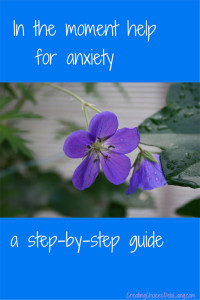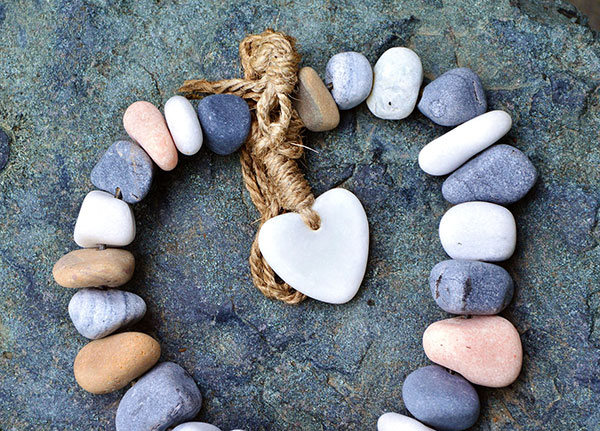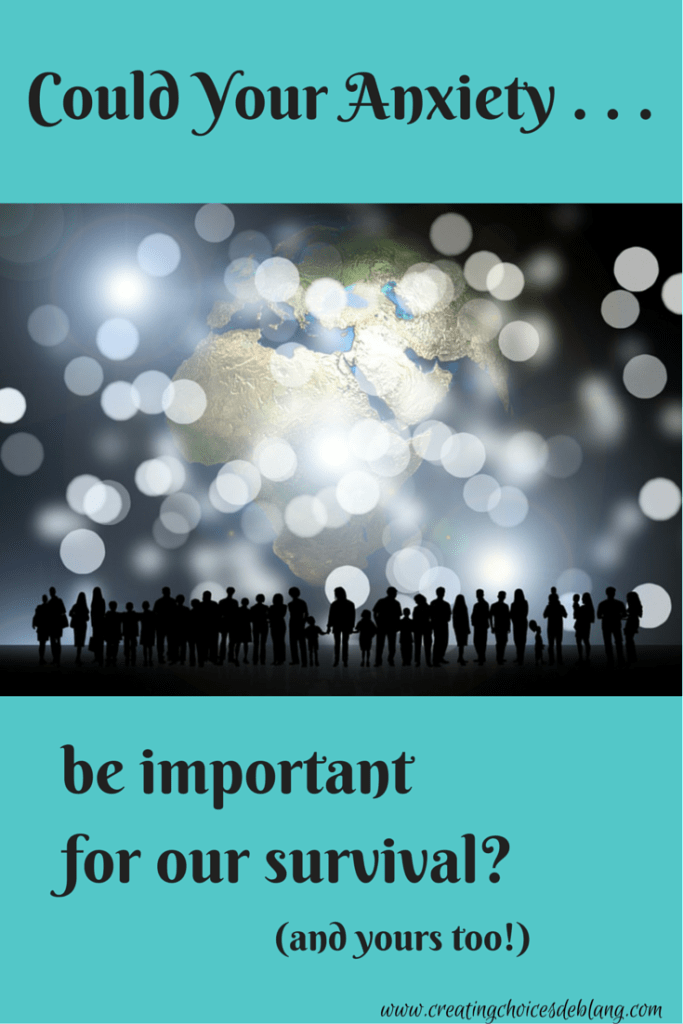We try hard to be calm – we meditate – practice relaxation – go to see a therapist if we are anxious and, in general, feel that there is something “wrong” with us if we are not calm, popular, and successful leaders.
I’m a big fan of self-care and helping people get relief from anxiety that is getting in the way of having a good quality of life. I also believe that we can be way too hard on ourselves.
There is so much input, today, on how we should be and, as a result, it is often difficult to feel “good enough” just as we are. As health practitioners, I worry that we may, unintentionally, support the notion that being a certain way is “best” – that, for instance, all of us should be calm, confident, secure and social.
From my posts, I imagine you are aware that I’m a strong supporter of self-acceptance and self-compassion. So, when I heard about this article from a research group that I belong to, it sure got my attention. Thanks, Judy!
This article puts a different spin on being anxious! Ein-Dor (2014) suggests that maybe it isn’t ideal for us all to be securely attached – or in other words, trusting, confident and seeking social support. Even though, we might think that is what is best for us – Mother Nature might have other ideas (my words).
As the author points out, it is “odd” from an evolutionary perspective, that so many of us don’t have a secure attachment – he suggests that would be half of us.
If you don’t know about attachment theory, don’t worry, it isn’t necessary to understand what he is proposing. And, if you would like to know more about that, leave me a comment, and I will be happy to share more about it.
Ein-Dor contends that we need to have individuals who are insecurely attached (anxious or avoidant), as a part of our group, in order to be best equipped to survive.
Most of the people that I work with, who struggle with anxiety, describe feeling envious of those calm, collected folks. So, I imagine the assumption would be that they would be best to have around in facing danger – am I right?
According to Ein-Dor, that group may, in fact, be slower responding to a threat, like smoke in a room, thus losing valuable time, whereas the anxious people would be faster to respond.
If you think about this, it does seem to make sense, as those who are anxious might be surveying the environment for signs of danger. And this is what he found. In a small study with a, seemingly, malfunctioning computer that was starting to smoke, the more anxious a person was, the more quickly they noticed this threat.
Ein-Dor suggests that it is all of us working together, with our varying degrees of secure attachment, which provides the most benefit for the group.
Some of us, because of an anxious temperament will be quicker to perceive of a threat, some of us due to an avoidant tendency will be more self-reliant and self-protective. And others will be better at leading and getting the group to work together.
It is interesting as one might assume that the self-reliant and self-protective people would not be a benefit to the group. But as Ein-Dor suggests, their actions at self-protection may not only protect themselves, but the group. He describes these individuals as having “fast fight or flight behaviors”. So these individuals might quickly find a fire extinguisher or an exit; thus helping the group.
 I realize that Ein-Dor was describing anxiety resulting from insecure attachment, and so I guess I don’t know for sure that these results would be true for everyone struggling with anxiety, although it would seem to make sense.
I realize that Ein-Dor was describing anxiety resulting from insecure attachment, and so I guess I don’t know for sure that these results would be true for everyone struggling with anxiety, although it would seem to make sense.
At any rate, if you worry about being more anxious than other people, I hope that this post has offered a bit of reassurance. Maybe it is not such a bad thing that you are more anxious than others – maybe you play an important role in the survival of our species!!
I am not suggesting that you suffer from anxiety which is causing difficulties in your life. Please get the support of a knowledgeable professional, if that is the case.
What I think is so important about this study is this: the assumption that it would be best if we were all calm and confident may not be what would be best for the survival of our species!
My hope is that this will nudge you to consider letting go of negative judgments of yourself for being who you are, even if you are anxious. Those judgments that we make about ourselves can have negative consequences.
Worrying about our tendency to be anxious most often increases symptoms of anxiety and harshly judging ourselves often results in other problems like low self-confidence.
These judgments are what some describe as the “second arrow”.
Want to learn more about that? I will be writing about the “second arrow” in my next post so be sure to check back or sign up at the top of the right sidebar, so that you will receive notification of when that post is published.
If you struggle with anxiety, you may also be interested in my free “in the moment” help for anxiety.
To download, simply click on the image. If you are already on my mailing list, and would like to download this guide, send me an email and I will get one to you.
I hope you have enjoyed thinking about this as much as I have! I would love to hear your thoughts and reactions, so be sure to leave a comment!
Ein-Dor, Tsachi. Social Defense Theory. Facing Danger: how do people behave in times of need? The case of adult attachment styles. Frontiers in Psychology, 10 December 2014.


0 Comments